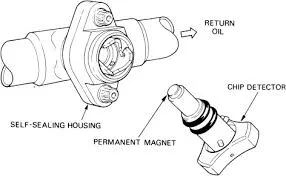Nov . 27, 2024 19:01 Back to list
Hydraulic Cylinder Manufacturing for Forklifts and Heavy Machinery Solutions
The Importance of Forklift Hydraulic Cylinders in Modern Warehousing
In the dynamic realm of modern warehousing and logistics, the efficiency and reliability of material handling equipment are paramount. Among the most critical components that contribute to the operational effectiveness of forklifts are hydraulic cylinders. These devices are instrumental in facilitating the lifting and lowering operations that are essential for moving heavy pallets and goods. This article will delve into the intricacies of forklift hydraulic cylinders, exploring their construction, function, and the significance of manufacturing quality in ensuring safety and efficiency in industrial applications.
Understanding Hydraulic Cylinders
A hydraulic cylinder is a mechanical actuator that uses hydraulic fluid to create linear motion and force. In the context of forklifts, these cylinders are responsible for lifting the forks and, consequently, the load. The basic structure of a hydraulic cylinder consists of a cylinder barrel, a piston, and two end caps, creating a sealed environment that allows for the controlled movement of fluid.
When hydraulic fluid is pumped into the cylinder, it creates pressure that pushes the piston upwards, thus lifting the load attached to the forklift. Conversely, when the fluid is released, gravity assists in bringing the load back down. This simplicity of design is complemented by the immense power hydraulic systems can deliver, making them ideal for heavy-duty lifting tasks in warehouses and distribution centers.
The Role of Quality in Manufacturing
The manufacturing process of forklift hydraulic cylinders is critical in determining their reliability and longevity. Factors such as the quality of materials used, precision in engineering, and adherence to safety standards play a significant role. A reputable hydraulic cylinder factory ensures that each product undergoes rigorous testing to meet or exceed industry expectations.
High-quality hydraulic cylinders are constructed from durable materials that can withstand the harsh conditions often found in industrial environments. They must resist wear and corrosion, which can be detrimental to their performance. Moreover, precision in machining ensures that each cylinder operates smoothly, reducing the risk of fluid leaks that could compromise functionality and safety.
Safety Considerations
forklift hydraulic cylinder factory

In industries where heavy lifting is a daily routine, safety cannot be overstated. Faulty hydraulic cylinders can lead to accidents that not only endanger workers but also result in costly damage to equipment and inventory. Therefore, investing in high-quality hydraulic cylinders from a dependable factory is essential for ensuring workplace safety.
Employers should also prioritize regular maintenance and inspection of forklifts, particularly the hydraulic systems. This proactive approach can identify wear and tear early, preventing malfunctions that could lead to dangerous situations. Training operators on the importance of hydraulic safety and proper usage further enhances the safety environment in warehouses.
Innovation and Technological Advancements
The field of hydraulic technology is continually evolving. Innovations in materials science, design techniques, and manufacturing processes have led to the creation of more efficient and powerful hydraulic cylinders. Modern forklifts may incorporate technology such as smart sensors that monitor hydraulic pressure and performance, providing real-time feedback and diagnostic information.
Moreover, environmental considerations have led to the development of eco-friendly hydraulic fluids and improved designs that minimize energy consumption. These advancements not only enhance performance but also contribute to a greener approach to logistics and warehousing.
Conclusion
In summary, the hydraulic cylinder is a vital component in the operation of forklifts, playing a crucial role in the safe and efficient handling of materials in warehouses. The quality of these cylinders, influenced by the practices of the manufacturers, directly impacts operational efficiency and safety. As technology continues to advance, the forklift industry stands to benefit even more from innovations that enhance the performance and environmental sustainability of hydraulic systems.
In an industry where every second counts, ensuring the reliability of forklift hydraulic cylinders is essential. Stakeholders must prioritize quality manufacturing, rigorous safety practices, and continuous education for operators. By doing so, they can create a safer, more efficient workspace that meets the demands of modern logistics and distribution. As the backbone of material handling, hydraulic cylinders will undoubtedly continue to evolve, driving the future of warehouse operations.
-
Fork Lift Power Units - Hebei Shenghan | Efficiency, Reliability
NewsJul.13,2025
-
1.5-Ton Turbocharged Cylinder-Hebei Shenghan|Hydraulic Solution,Energy Efficiency
NewsJul.13,2025
-
Auto Hoist Power Units-Hebei Shenghan|Efficiency&Industrial Lifting
NewsJul.13,2025
-
Double Acting Power Units-Hebei Shenghan|Hydraulic Solutions,Industrial Efficiency
NewsJul.13,2025
-
1.5 Ton Lifting Cylinder 70/82-40-290-535 - High-Performance Hydraulic Solution | Hebei Shenghan
NewsJul.13,2025
-
Fork Lift Power Units - Hebei Shenghan | Efficiency&Reliability
NewsJul.13,2025
